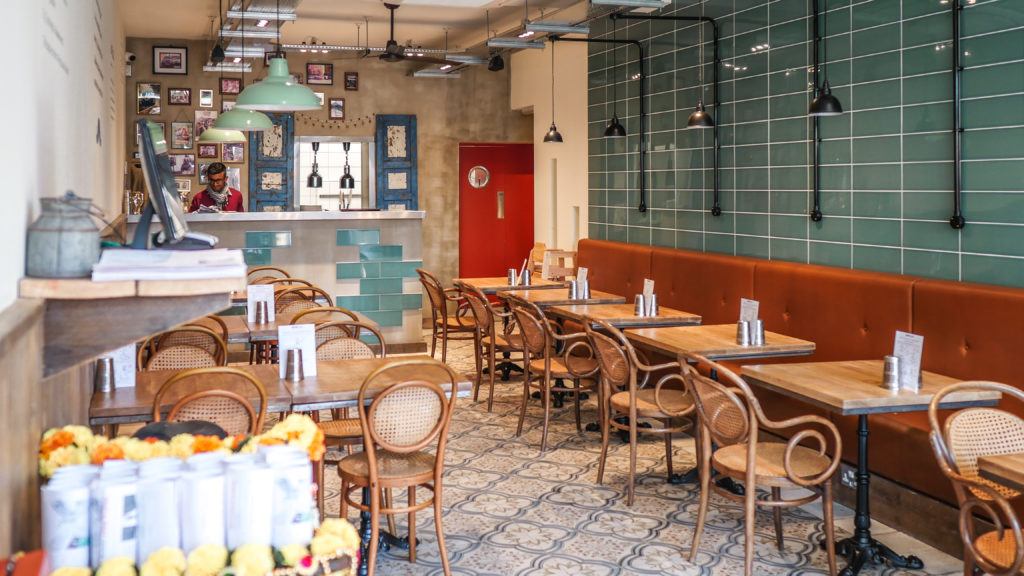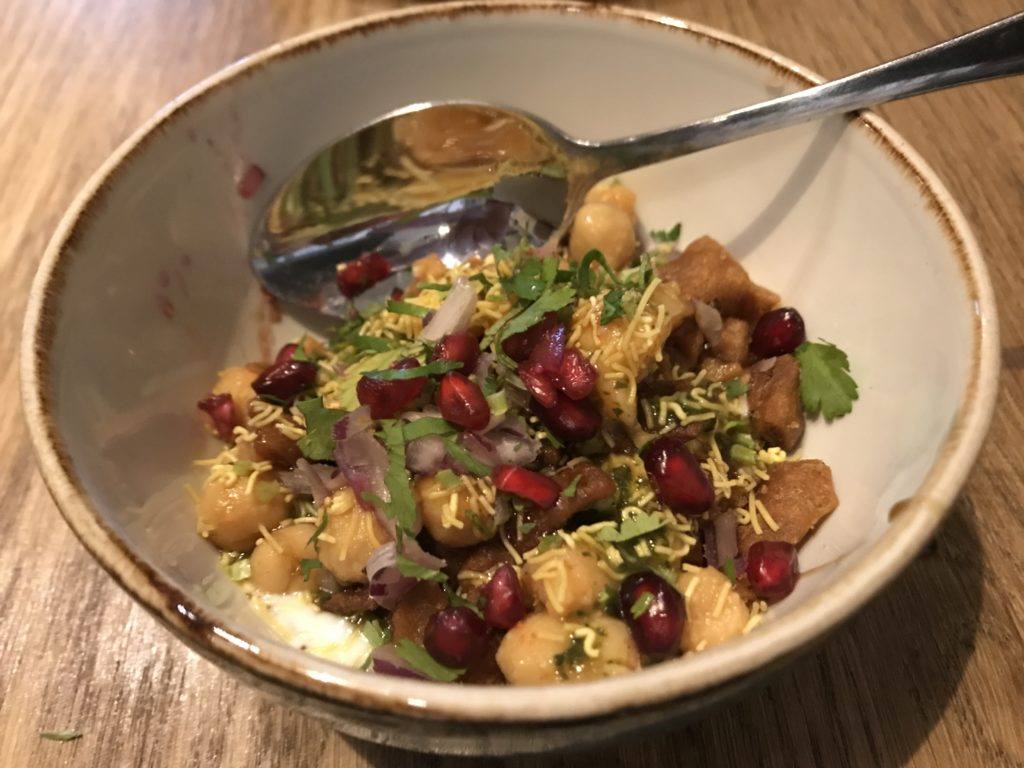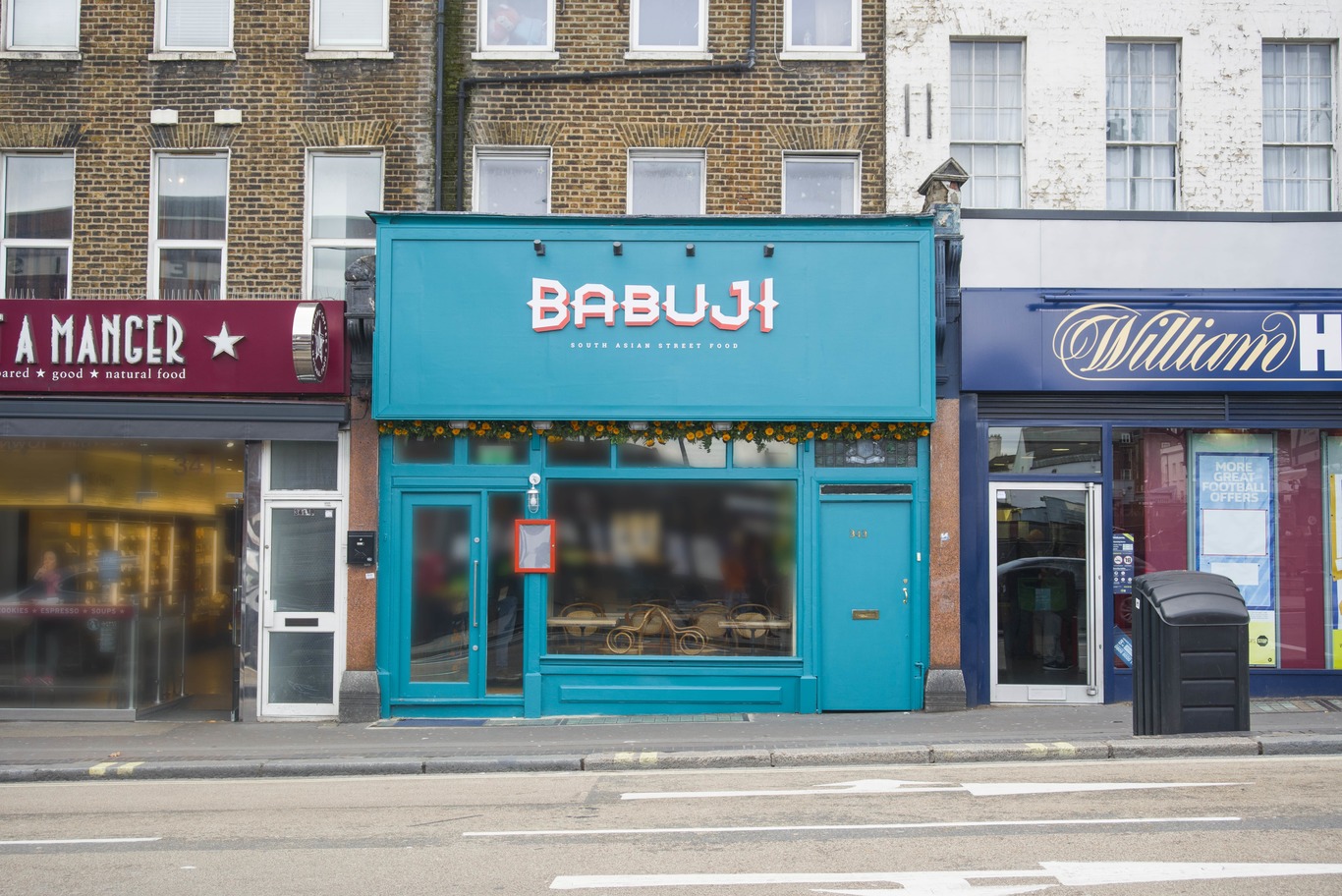Babuji is a near-flawless rethink of Kentish Town Road’s longstanding Gulshaan Indian restaurant.
At least, that’s our conclusion after a spontaneous dinner at this new South Asian streetfood café, its bright turquoise exterior and engaging font almost irresistible to the casual passer-by.
Despite only reopening a few weeks ago, it’s rammed as we enter just before 7pm on an early midweek evening. In fact, nabbing the last two seats, the buzz is palpable.
The artfully mismatched interior is lovely: there’s wood panelling along the lower half of one wall, and glossy teal tiles on the other, under which a tan leather banquette runs. There are pendant lights, casual rattan bentwood repro chairs and patterned floor tiles – all a Dishoom-style nod to classic train station cafe #realness.
Don’t forget to take a closer look at the brushed concrete back wall, decorated with old family photos over the flash of open kitchen. And even the gleaming basement toilets are no afterthought: traditional music plays, with cartoons and murals lining the wooden steps down.
With exactly the same owners as before, if all this is the end result of hiring a creative agency, good for them.

So why the new name? The blurb on the rather knowing menu explains that Babuji refers to owner Mo Miah’s father, who travelled through Bangladesh, India and Pakistan back in 1959 before settling in the UK. The dishes on offer are those he encountered, from Bengali bites to traditional Pakistani homely fare. And these creations can all be found in the street stalls and cafés of Calcutta, Mumbai and Lahore – his three personal favourites.
Mouth watering yet? It should be. Back to our visit: commandeering the only free table, we swiftly choose one item from each of the five sections. From the Phat-a-Phat (or Quick Eats) it’s the textural pleasures of padpri chaat – crispy wafers with potato, chickpeas and red onion, jewelled by liberal use of zingy pomegranate seeds. We also scoff onion pakora, the fritter’s innards soft and giving, with a chickpea crust spiced perfectly.
And so to mains. The biryani comes in a seemingly antique silver bowl, its strands of fragrant basmati light, and chunks of slow-cooked chicken topped with caramelised onions. A yoghurt dip cuts through with its sour creaminess.
In the slightly too self-conscious section labelled ‘Ruby Murray’ – geddit? – we strike gold with the dhal makhni: served densely in a generous bowl, these slow-cooked black lentils from the Punjab are loaded with indulgent notes of butter and cream. Deeply comforting, the dish is served with a roti to eat with our fingers, something the menu makes a real point about. There’s even a separate illustrated guide telling us ‘eating with your hands is awesome…cutlery is frowned upon.’

But the best dish? Perhaps also the most frustrating: a trio of Lahori lamb chops from the ‘Garam Grills’ section are a Pakistani speciality, says the menu: marinated in spices and ginger, the meat is beautifully flavoursome, and extremely tender with its blackened crust. The only problem? They’re tiny: two barely have any meat on, the third a lilliputian mouthful. My advice would be to the owners would be to increase the price (they’re currently £7.95) and provide two fuller chops – much better for sharing.
And that’s the only constructive criticism. The dishes are well-priced (ours ranged £3.95 – £7.95); and to drink there are Indian craft beers, chai cups and not-extortionate wine (our Argentinian Malbec was £17).
It goes without saying that we’ll be back to work our way through more of the menu. In short: a thrilling reinvention.
Main image: Dimitra Sardi


